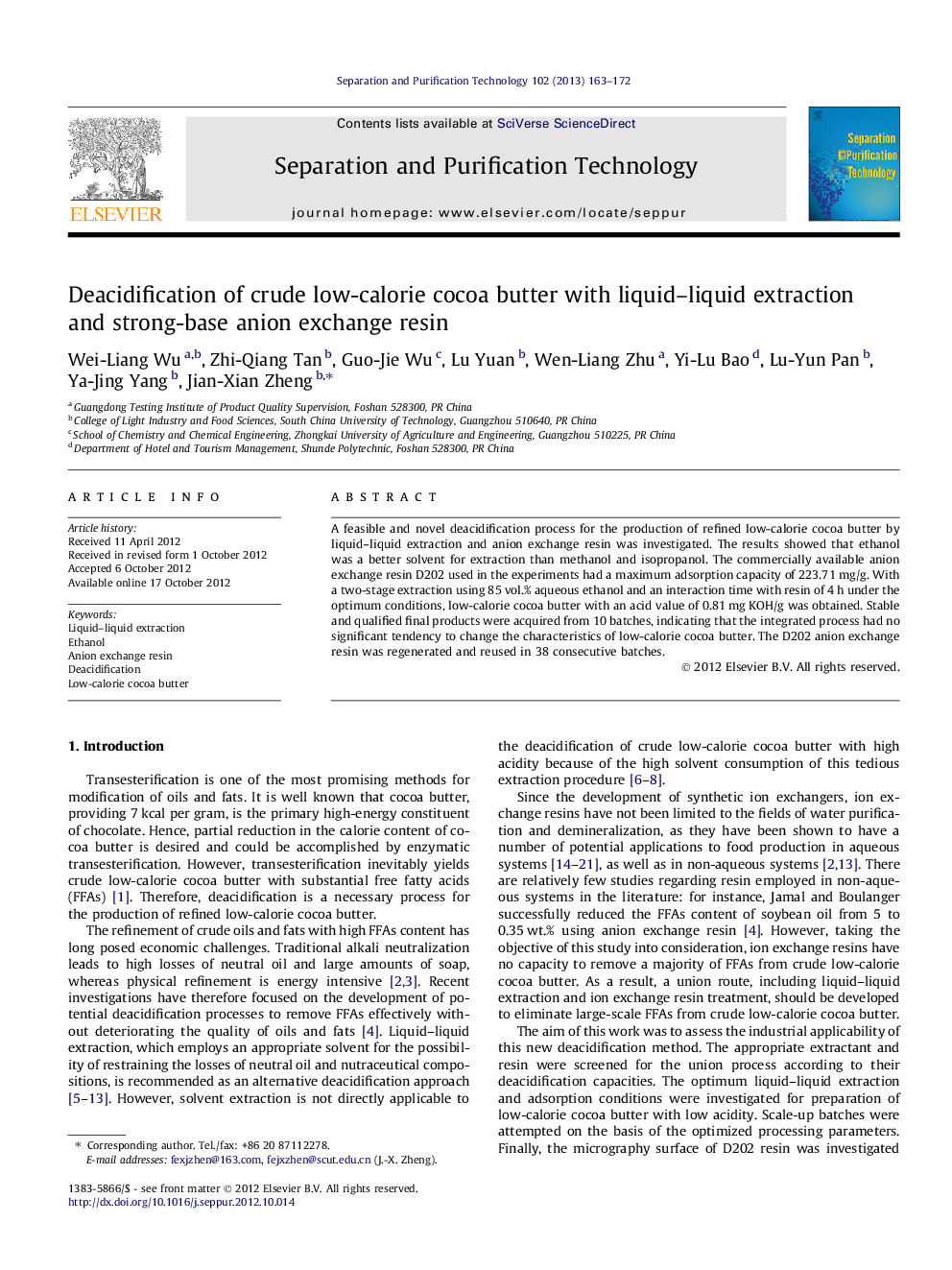| Article ID | Journal | Published Year | Pages | File Type |
|---|---|---|---|---|
| 641903 | Separation and Purification Technology | 2013 | 10 Pages |
A feasible and novel deacidification process for the production of refined low-calorie cocoa butter by liquid–liquid extraction and anion exchange resin was investigated. The results showed that ethanol was a better solvent for extraction than methanol and isopropanol. The commercially available anion exchange resin D202 used in the experiments had a maximum adsorption capacity of 223.71 mg/g. With a two-stage extraction using 85 vol.% aqueous ethanol and an interaction time with resin of 4 h under the optimum conditions, low-calorie cocoa butter with an acid value of 0.81 mg KOH/g was obtained. Stable and qualified final products were acquired from 10 batches, indicating that the integrated process had no significant tendency to change the characteristics of low-calorie cocoa butter. The D202 anion exchange resin was regenerated and reused in 38 consecutive batches.
► Solvent extraction united with resin treatment is employed for deacidification. ► The novel union strategy has simplified process and saved solvent consumption. ► D202 anion exchange resin has best performance on free fatty acids removal. ► Effects of processing parameters on resin treatment have been investigated. ► Scale-up batches have been attempted to prove the feasibility of the union process.
